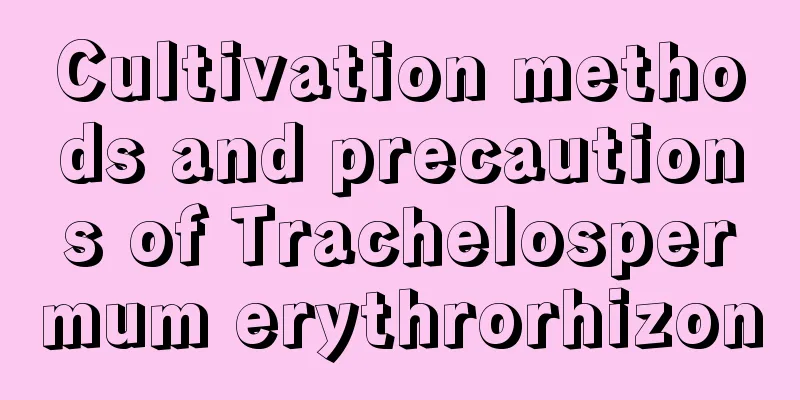Lemongrass cultivation method

1. Maintenance methods1. Temperature: It likes a warm environment and the temperature cannot be too low. If the ambient temperature is -1.8℃, the plant is directly at risk of frostbite. Therefore, it cannot be directly outdoors in winter. It needs to keep warm. A warm environment can ensure its survival. 2. Watering: For growth, you just need to keep the soil from being too dry. Don’t water too much, especially in the rainy season. You need to be careful not to allow water to accumulate. You need to drain the water in time. If there is water accumulation, the roots of the plants will be soaked in water for a long time and will easily rot, affecting their growth. 3. Light: It needs enough warm sunlight to grow, so that it can grow more robustly and the color will be greener. In spring and autumn, it can accept full sunlight. In summer, it needs to be properly shaded to prevent the plant from being sunburned. 4. Fertilization: Generally, fertilization needs to be applied strictly according to its growth trend. Do not apply too much fertilizer nor no fertilizer. If the plant is relatively short, too much fertilizer will directly burn it, so you need to observe its growth conditions and then decide the amount of fertilizer. 2. Breeding techniques1. Reproduction: Sowing is the main method of reproduction. The best time is in spring. The temperature in spring is suitable, which is the critical period for seed germination. Therefore, you can choose spring. After sowing, you should pay attention to receiving normal warm light, which is conducive to seed germination. 2. Pruning: It hardly needs pruning because its growth rate is relatively slow. You just need to observe its growth more often. If there are diseased branches or branches with poor growth, you can just pick them off with your hands. 3. Problem diagnosis and treatment1. Disease: Leaf blight occurs in hot and rainy seasons. Bordeaux solution can be used to control its damage, or the diseased branches and leaves can be cut off for timely prevention. 2. Pests: Mosquitoes may appear in the lemongrass bushes. Although they do not cause any harm to its growth, some pesticides can be used to control them. IV. Other issues1. Toxicity: It is non-toxic, edible and has high nutritional value. 2. Can it be grown at home? Yes, but its normal growth conditions need to be guaranteed. In summer, in order for it to receive normal light, you can open the windows. |
<<: How to cultivate summer plum
Recommend
Can orchids be fertilized with cake fertilizer? Can orchids be watered with cake fertilizer water?
1. Can it be applied? Orchids can be fertilized w...
How to make dried roses, how to make dried roses
1. Natural drying method When making it into drie...
Disease and Pest Control of Lily and Azalea
Leaf swell This disease occurs quite frequently. ...
How to care for the newly bought butterfly flower
1. Lighting Butterfly flower is light-loving. Aft...
How to propagate Clematis and what to pay attention to
How to propagate Clematis Clematis is generally p...
When to sow morning glory?
The corolla of morning glory is funnel-shaped and...
Soilless Cultivation of Iris flexuosa
Preparation for soilless cultivation of hibiscus ...
When is the best time to transplant kiwifruit (Kiwifruit transplanting time and method)
Before transplanting kiwifruit, you need to check...
How to deal with lily of the valley after it withers
Treatment after lily of the valley fades 1. Manag...
The growth environment and growth characteristics of hawthorn
Hawthorn growth environment and conditions Hawtho...
How often should the bear's paw be watered in summer? Watering methods and precautions
Frequency of watering Bear's Paw in summer Wh...
Don’t grow green ivy anymore. Bring a pot of fragrant flowers during the New Year and the house will be filled with fragrance, making you feel energetic!
orchid Smell: subtle fragrance, low-key and elega...
Can sugar apples be grown in Guangxi?
Can sugar apples be grown in Guangxi? Sugar-apple...
Succulent plant pictures and names
Succulents - Crassulaceae The plants of Crassulac...
Causes and solutions for root rot of Chinese evergreen
Causes of root rot Too much watering The Chinese ...









